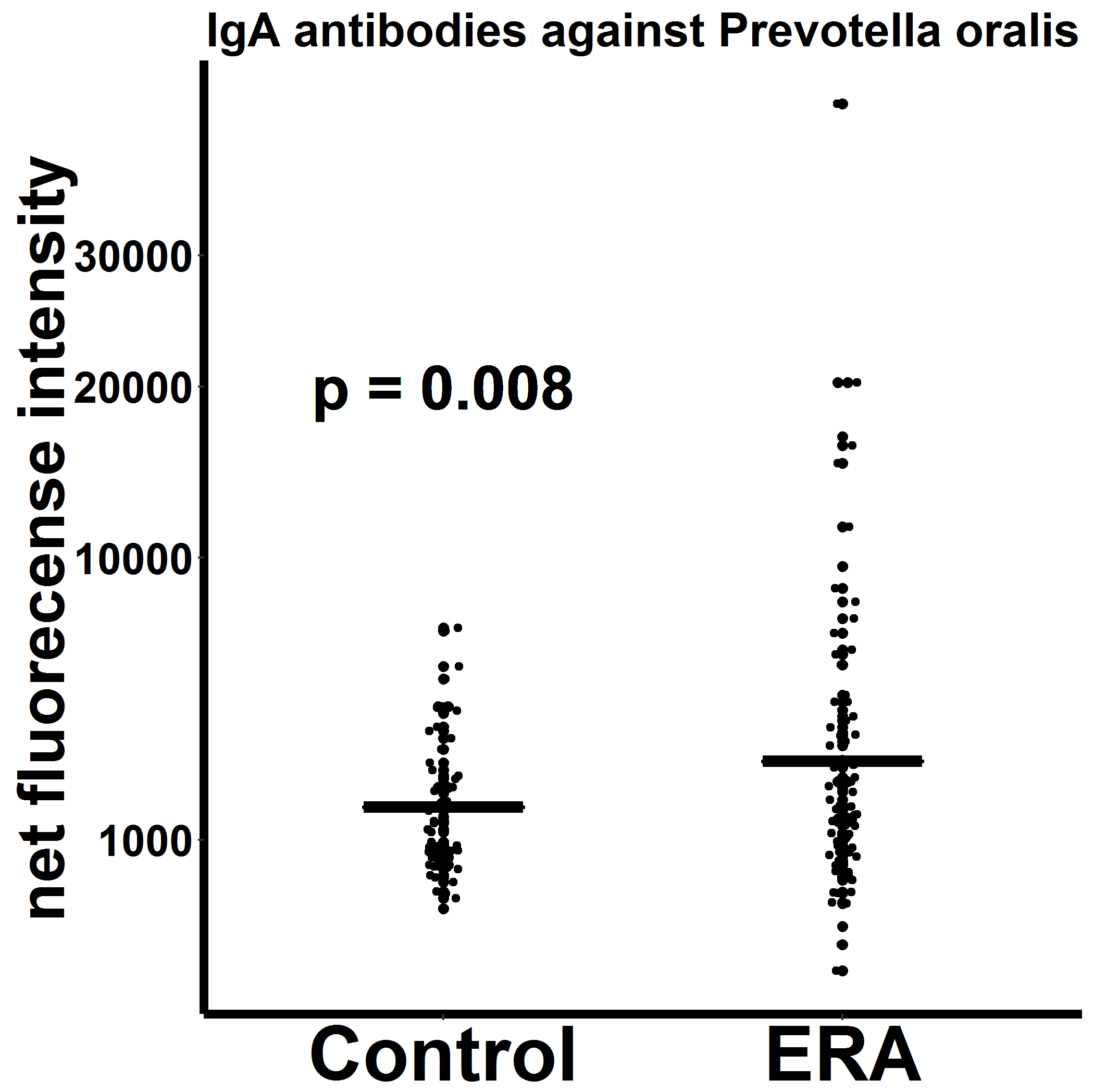Session Information
Date: Tuesday, November 15, 2016
Title: Spondylarthropathies Psoriatic Arthritis – Pathogenesis, Etiology - Poster II
Session Type: ACR Poster Session C
Session Time: 9:00AM-11:00AM
Background/Purpose: Research in inflammatory bowel disease (IBD) has identified commensal organisms that stimulate humoral and T cell immune responses. Although there is mixed data on whether similar antibodies are also present in spondyloarthritis (SpA), there has not been a comprehensive effort to identify commensal antigenic targets in SpA.
Methods: We used a novel antigen array developed by one of the co-authors (1) in which lysates of whole bacteria were plated, along with known flagellar and other commensal-derived antigens. Initial screening was performed with pooled serum samples from children with enthesitis-related arthritis (ERA) and healthy control subjects, testing for IgG and IgA reactivity. Validation was performed with Western blots and with individual serum samples on the array.
Results: The initial screening studies were performed on pools of five ERA subjects and healthy controls. For most of the antigens tested on the array, there were no differences in binding between ERA patients and controls. However, IgG and IgA reactivity against Prevotella oralis was present only in the patients with ERA, not in controls or even in the pool of patients with ERA complicated by IBD. Western blots against P. oralis with ERA serum identified a high molecular weight glycoprotein that was not targeted by control serum. To confirm our findings, we repeated the array on individual serum samples from 83 patients with ERA (44 male; age 13; 6.0 – 19) and 59 healthy control subjects (33 male; age 13; 6.6 – 18). While there were no differences in IgG or IgA reactivity to most antigens, including the positive control Tetanus toxoid, ERA subjects had increased IgA reactivity against P. oralis (net signal intensity [NSI] 3761 versus 1835, p = 0.008; Figure) as well as to P. buccalis (NSI 962 versus 618, p = 0.008.) ERA patients also had increased IgG reactivity against P. buccalis (NSI 4936 versus 2718, p = 0.003) as well as a modest increase against the previously identified IBD-associated antigen Fla2 (NSI 1310 versus 1007, p = 0.026). Among the ERA patients, there was no association between HLA-B27 status and reactivity against these antigens.
Conclusion: Herein, we introduce members of the Prevotella genus, primarily P. oralis and P. buccalis, as potential antigenic targets in children with ERA. We also demonstrate increased Fla2 reactivity in children with ERA, consistent with data in adults with SpA. (1) Christmann B et al., JACI 2015;136:1378-86
To cite this abstract in AMA style:
Stoll ML, Duck LW, Cron RQ, Elson CO. Identification of a Potential Commensal Immunologic Target in Enthesitis-Related Arthritis [abstract]. Arthritis Rheumatol. 2016; 68 (suppl 10). https://acrabstracts.org/abstract/identification-of-a-potential-commensal-immunologic-target-in-enthesitis-related-arthritis/. Accessed .« Back to 2016 ACR/ARHP Annual Meeting
ACR Meeting Abstracts - https://acrabstracts.org/abstract/identification-of-a-potential-commensal-immunologic-target-in-enthesitis-related-arthritis/

